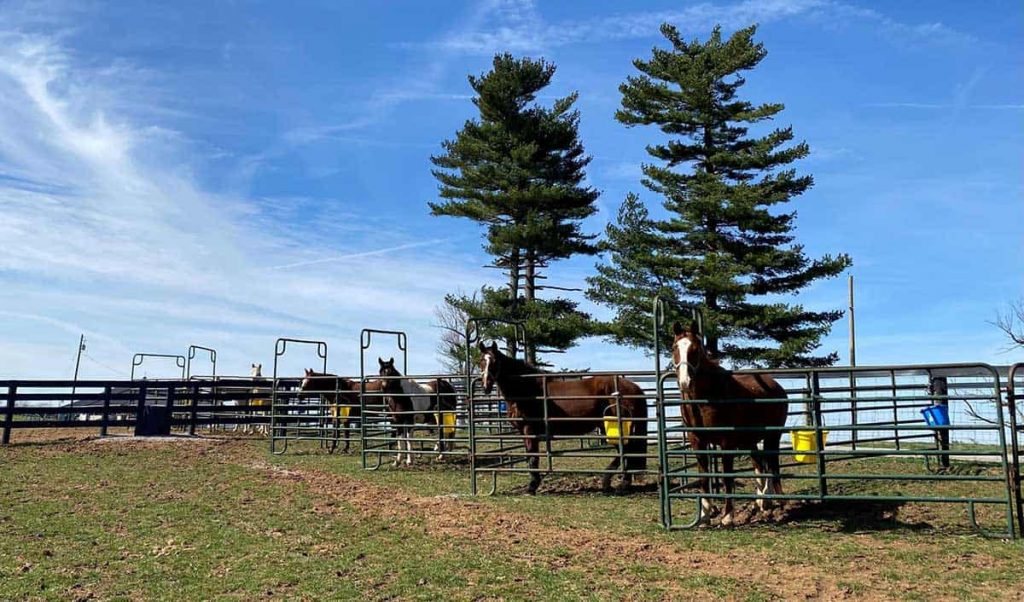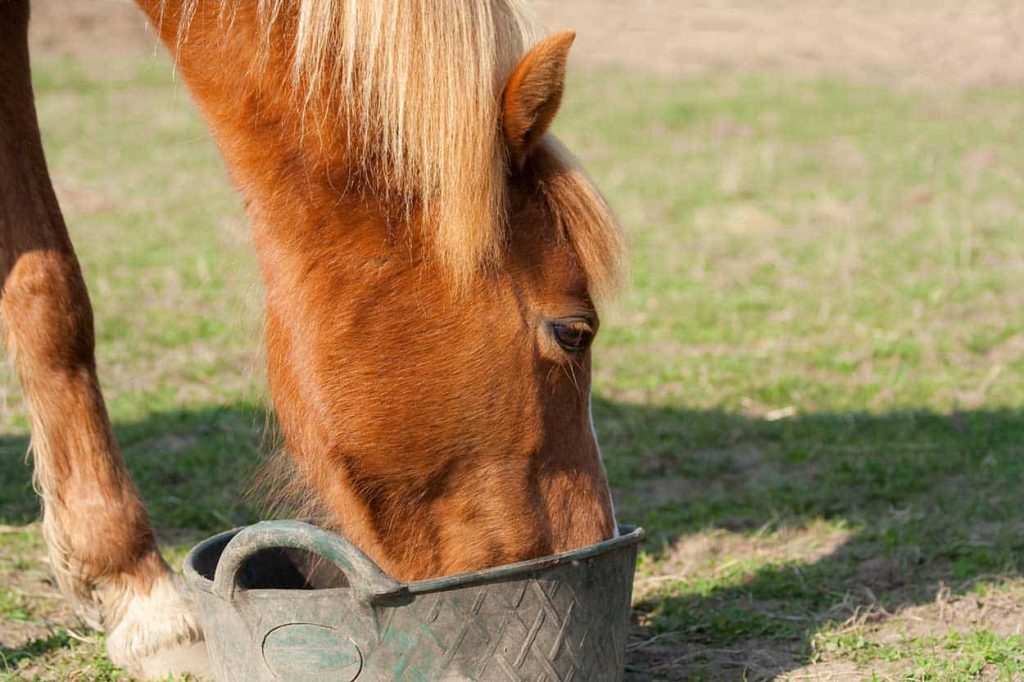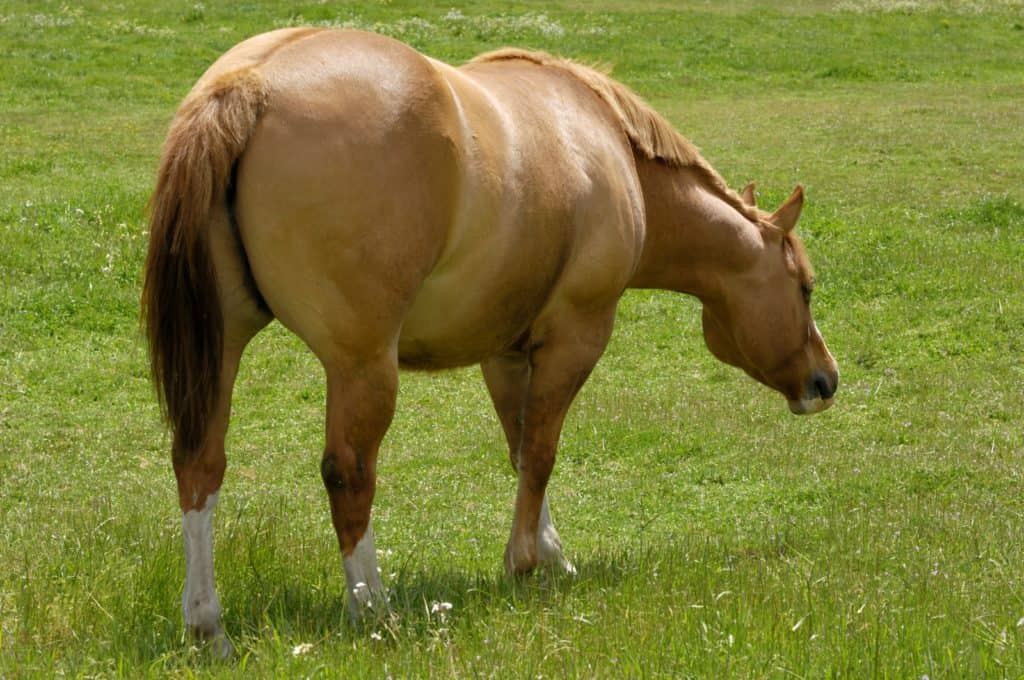
How To Feed Your Horse
Learn about feeding basics, from hydration and forage to feeds and supplements, so you can make the best nutritional choices for your horse.

Learn about feeding basics, from hydration and forage to feeds and supplements, so you can make the best nutritional choices for your horse.

Learn how to help your horse shed his excess pounds safely.

Grazing horses at night can help keep them at a healthy weight and reduce their sugar intake.

Learn how horses go from metabolic to laminitic and ways to manage them.

Choosing a diet that is low in starch and sugar can help reduce excess muscle glycogen storage in horses with PSSM.

All horses and ponies have a different threshold for NSCs, but researchers are beginning to better understand how to feed horses with ID and EMS.

An equine nutritionist’s advice on choosing treats for horses and ponies that might be prone to insulin dysregulation, obesity, or EMS.

Owners should take an individual and regional approach to planning low-NSC diets for ID horses.

A veterinarian says both age and breed can affect a horse’s predisposition to insulin resistance.

Insulin moves glucose from the blood into muscle and other tissue, but sometimes the process doesn’t go smoothly.

Using a focus-on-forage approach, a veterinarian specializing in equine nutrition explains how she plans a diet for easy keepers.

Discover tips for managing horses with insulin resistance in the archived recording of our podcast. Sponsored by Wellness Ready.

Researchers are redefining the muscular diseases long called “tying-up.” While they seem similar, the causes are different, and each requires specific management.

Learn about feeding your senior horse in this archived recording of our podcast. Sponsored by Purina.

Low-starch forage and weight loss can help horses with laminitis regain their foothold.

Does alfalfa make horses “hot”? Should they not eat before exercising? Many of our feeding practices are based on tradition, but what’s really best for our horses?
Stay on top of the most recent Horse Health news with
"*" indicates required fields